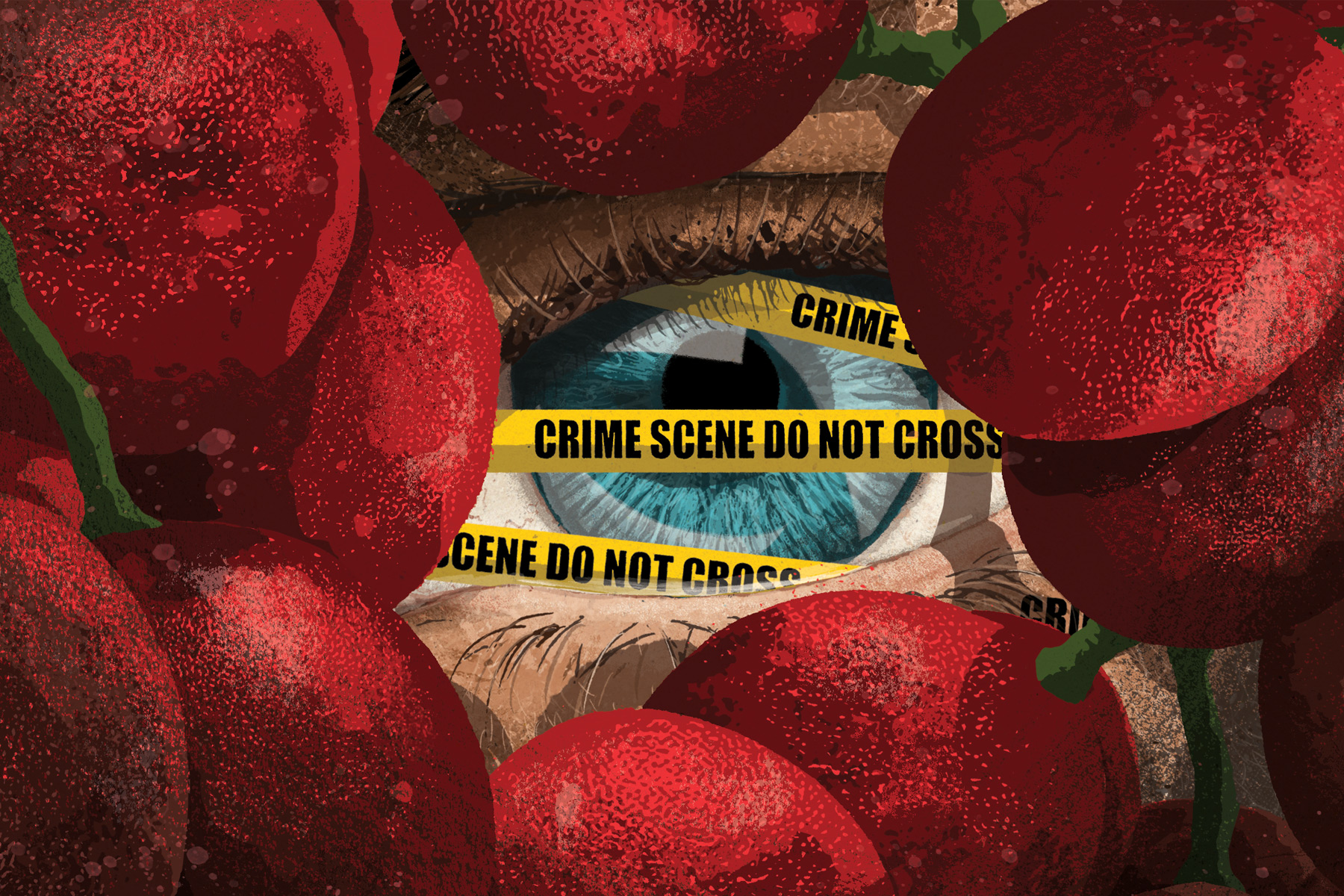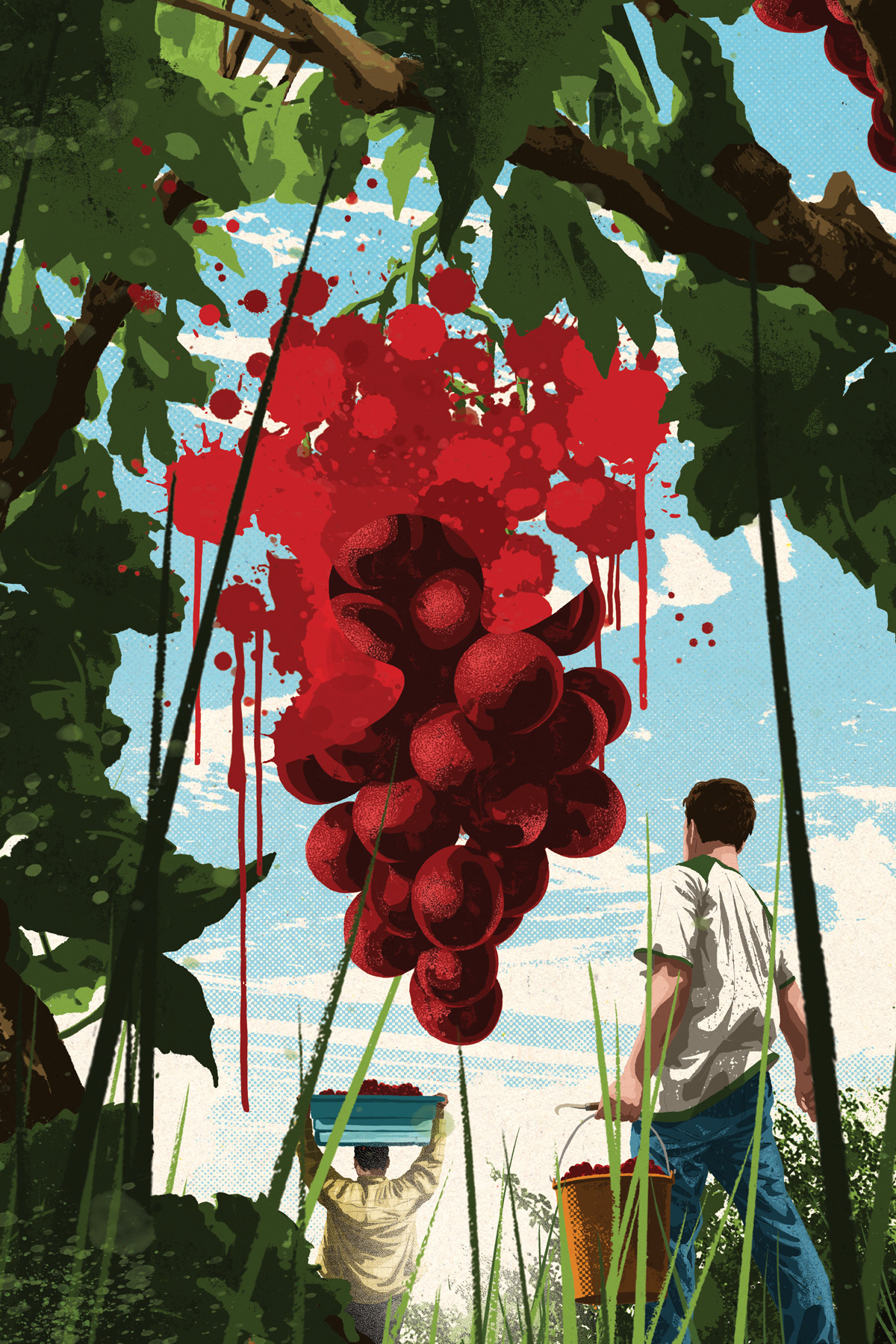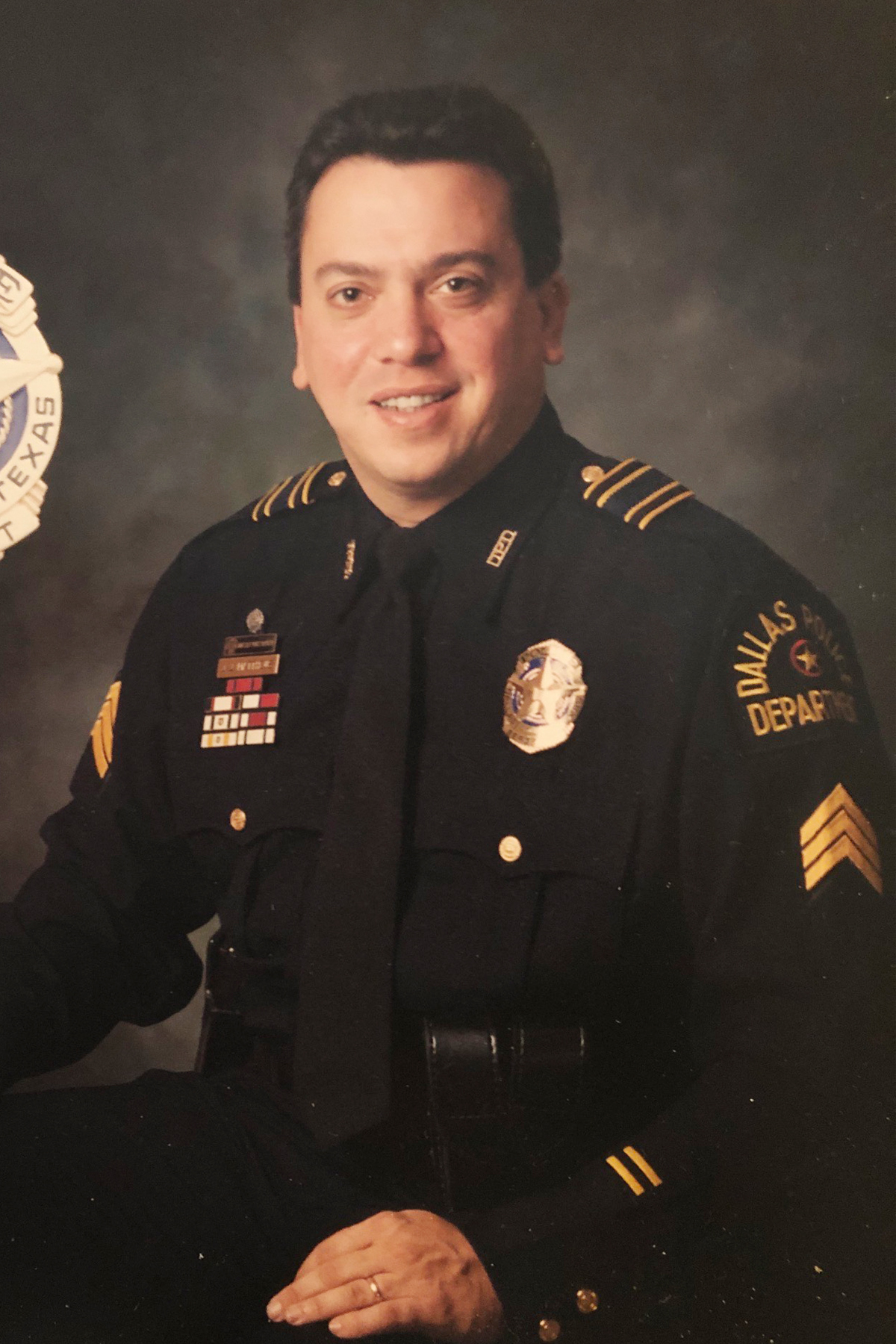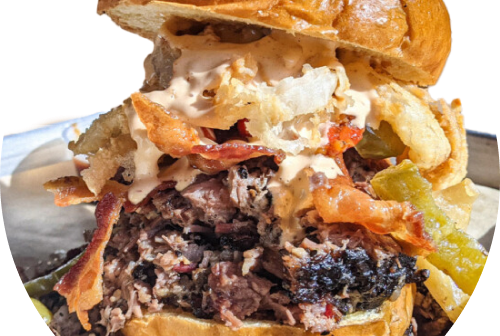About 20 miles south of Dallas, off Ovilla’s narrow, two-lane Main Street, just past the former Pickard Store that’s rumored to be one of Bonnie and Clyde’s supply stops, we pull into a dirt parking lot and up to a white 1910 ranch home. The home belongs to Cassaro Winery and Vineyard, as do the 3 green acres of pecan trees and picnic tables and a trickling creek at the bottom of a hill. My husband and I walk inside the house, into a tasting room that has heavily textured, faux stucco walls with espresso-stained wood accents, making it look like exactly what it is: a Texas cop’s reproduction of a Tuscan farmhouse.
In a room just off the main bar, we spot John Matthews. He is a stocky figure in a black-on-black suit and t-shirt, greeting guests, signing copies of his books, and answering questions about the possibility of a movie based on his story. (The fictionalized script is in the fundraising stage.)
Another couple sits on the other side of our four-top. The wife has a head of tight curls and a sweatshirt that reads: “True Crime. Glass of Wine. In Bed by Nine.” She is a true crime enthusiast of the small-screen persuasion.
“That is all I watch,” Curly says.
“Why Women Kill,” her husband says.
“Wives With Knives,” Curly says with a nod. “Those are good ones.”
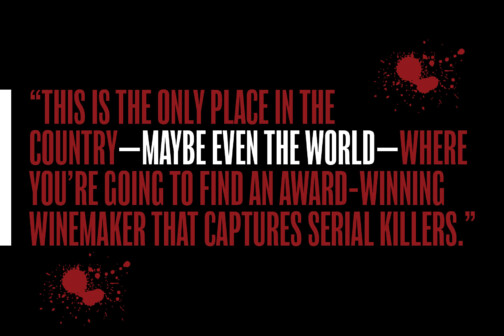
“Anything on Investigation Discovery,” the husband adds, referring to the channel dedicated to true crime documentary series, including such titles as Scorned: Fatal Fury; Black Widows: Kiss, Marry, Kill; and Who the (Bleep) Did I Marry? (The “bleep” is their own addition.)
“Pretty much the whole gamut,” Curly says.
“Better watch out!” says the schoolteacher sitting to my left, directing her comment to Curly’s husband. My own husband offers a polite smile and takes a sip of his wine. Tempranillo and crime scene photos are not his idea of a date night.
The room goes quiet, and Matthews begins. “Welcome to Cassaro Winery,” he says. “This is the only place in the country—maybe even the world—where you’re going to find an award-winning winemaker that captures serial killers.”
Episode 1 of Matthews’ “True Crime and Wine” series—imagine an interactive podcast—starts near the end of 1990, just as Dallas was heading into its bloodiest year on record. Crack cocaine and the sudden boom of street gangs would send the murder rate soaring to 500 homicides in 1991. (For perspective, Dallas counted 214 homicides in 2022.) Matthews recalls one eight-hour shift in which he responded to seven shootings. “I cannot tell you how many kids I saw die right in front of me,” he says. “And for years, I kept my boots that I wore on duty at that time. Literally, no matter what I did, no matter what I cleaned it with, no matter what I polished it with, I could never get the blood off those boots.”
The uptick in crime did not spare Oak Cliff. The once-bustling Jefferson Boulevard started a downward spiral in the 1970s, when department stores such as JCPenney fled for shopping malls. The ticket booth line outside the Texas Theatre—the city’s first air-conditioned movie house in 1931 and, most famously, the site of Lee Harvey Oswald’s arrest—dwindled until United Artists shuttered the building in 1989. The thoroughfare became a stomping ground for sex workers, drug dealers, and petty thieves. In an effort to turn the neighborhood around, the Dallas Police Department installed two of their own—John Matthews and Regina Smith—inside a storefront on the street, something of a pop-up police station.
Matthews quickly realized what they were up against. He was almost out the door after an introductory chitchat with one store owner when the man stopped him and mentioned that, oh, by the way, the store had been robbed at gunpoint earlier that morning. “Why didn’t you call us?” Matthews asked in disbelief. The owner explained that thefts occurred too frequently, and police responded too slowly; the occasional cash-drawer raid was just the cost of doing business.
Matthews tried some out-there tactics for the time. He bought a bundle of brooms and passed them out to business owners. He’d be out sweeping his sidewalk before each shift and suggested they do the same. “I just thought, hey, if we can, little by little, start cleaning this place up and making it look like somebody cares about it,” he says, “then that’s going to have an impact on crime.”
Matthews and Smith also introduced a program they called “Just the Fax,” in which businesses used fax machines to alert one another about criminal activity. Within two years of the pair’s Jefferson Boulevard patrol, crime dropped 70 percent.
The two officers also got well acquainted with the area’s working girls, and Matthews had to break out his old “hook book.” Patrolling Harry Hines Boulevard as a young policeman in the ’80s, he became known as the cop who knew the prostitutes, and the small notebook in which he cataloged each sex worker’s stats—height, hair color, usual hangout, pimp—came in handy on more than one occasion. In one case, he identified a decapitated body by the victim’s tattoo and told the investigators where they could find the woman’s missing part. Investigators drove to the address Matthews gave them, and, sure enough, inside a pimp’s flophouse on full display, the severed head acted as a warning to the other women who might be inclined to cheat their boss.
The professional affiliation with sex workers led to some uncomfortable civilian situations, however, when the high-pitch call of “Hi, JJ!”—the initials on Matthews’ police uniform—came ringing into the wholesome domain of his domestic life. He recalls run-ins at a Chuck E. Cheese birthday party (he scooped up his kids and scurried) and at stoplights while courting a blond rookie officer. (Jill married John nonetheless; they celebrated their 25th wedding anniversary last year.)
But it was Matthews’ rapport with the working girls of Oak Cliff that would lead to a life-changing arrest. On December 13, 1990, not even two months after Matthews and Smith had started their Jefferson Boulevard beat, a sex worker’s body was found in far southern Dallas, followed by another body in February 1991 and a third a month later. All three bodies had bruises, bullets to the head, and were left in the street, exposed. The most disturbing detail was not discovered until the medical examiner lifted the first victim’s eyelids: the eyeballs had been extracted with “surgical precision.”
This being 1991, homicide detectives were up to their necks in death, and these cases offered no easy leads. But Matthews and Smith talked with the sex workers on a daily basis. One strung-out prostitute, nicknamed Flaca, claimed she narrowly escaped the killer but was saved by a truck driver who lived near the site of her attack. Flaca had a history of whipping up sob stories to avoid jail time, but, over the following months, she never changed the major points of her story. When another sex worker told them about a near miss with a violent trick, Matthews and Smith went downtown to do some digging in county records. As they were looking into the supposedly heroic truck driver, they saw that he rented a house from someone by the name of Albright. It just so happened that the constable on duty that day received a tip about an Albright: an ex-girlfriend said the man had an obsession with eyes and a collection of X-Acto knives. Just like that, the street cops caught the killer.
After DPD’s tactical team raid, Matthews was given the honor of cuffing Charles Albright. With a decade of police work under his holster, Matthews had thrown many a murderer in the back of his squad car, but he will never forget that man’s cold, gray stare. “It was a totally different feeling,” Matthews says. “One of the first times I can remember that I turned around and had my hand on my gun.”
Skip Hollandsworth, who interviewed Charles Albright in prison to write Texas Monthly’s 1993 feature “See No Evil,” says the case was “one of those stories that haunts you forever.” “There’s rarely been a Dallas crime story like this one for the last 30 years,” Hollandsworth says. “But if it weren’t for John and Regina, it could be a mystery that no one would have ever figured out.”
Albright, aka the Eyeball Killer, died in a Lubbock prison on August 22, 2022. As Matthews wraps the tale in his tasting room, an audience member poses an oft-asked question: “Are you sure you got the right guy?”
Matthews shoots back a hard-boiled answer: “All I know is that the killing stopped.”
There are two subjects that will cause John Matthews to clam up. The first is his former partner, Regina Smith, who made gossip rag headlines around the world, in 2012, when videos surfaced of her rapping as red-wigged alter ego Lucille Baller and threatening to put a bullet in anyone in the music industry who tried to take advantage of her, saying, “I’ll stick it from they rooter to the tooter and bring it out.”
The other subject that will make Matthews play coy: enological trade secrets. How did he take the bite off the back end of his merlot? What are the percentages of sangiovese to dolcetto in his Gioia blend? He spends months playing mad scientist with rows of beakers to perfect his blends, so, no, he’s not about to disclose that intelligence.
Understanding how one could beat a path from street cop to winemaker makes more sense when Matthews tells me about his first business, launched at age 15. With a learner’s permit in hand and the hope of earning enough scratch to pay for a car, Matthews scoured Denton for hiring signs. As he walked into one warehouse, he watched a forklift operator lose control of a load, causing the pallet to break apart.
“Where do I go apply?” he asked the operator. The man pointed him to the office. Matthews paused. “You know, I saw all those broken pallets outside. What’s the deal?” he asked.
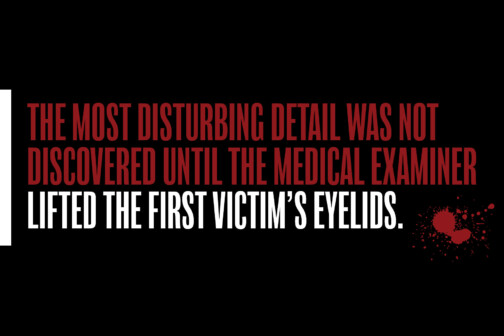
“Oh, we bust them all the time,” the man told him.
Within minutes, Matthews struck a deal: he’d fix the broken pallets and sell them back to the warehouse for a fraction of the cost of new pallets. “Total spur of the moment,” Matthews says.
Matthews explained his newfound venture to a hardware store clerk. “What do I do?” he asked. The clerk sold him a crowbar, hammer, package of nails, and utility apron. (“I thought that was really, really cool.”) After some trial and error, Matthews could repair 10 pallets in an hour. He took his business proposal to other warehouses. He lured friends away from burger-joint flattops. Matthews’ pallet enterprise took him through high school and into college at UNT, where he graduated early with a degree in business. (He’d later get a master’s from UNT.)
No sooner had Matthews followed in his father’s footsteps to become an officer of the law than he started consulting, a second income that gave him more freedom to try those unusual tactics. (“You know how much grief you get for being in a uniform with a broom on the sidewalk?”) While on the Jefferson Boulevard beat, he talked the editor of the Oak Cliff Tribune into giving him a regular column. He ended up winning a Texas Press Association award.
In the mid-’90s, Matthews took to the airwaves with a Sunday afternoon radio show on KRLD in which listeners could call in to talk policing and criminal justice issues. “No badge. No gun. Just you and me. We don’t even have caller ID, folks,” he’d say.
He developed a program for DPD called Interactive Community Policing. The acronym was ICP; a lot of the other cops called it “I Can’t Police.” “It’s about changing the paradigm,” Matthews says. “We’ve got to get away from counting our tickets and measuring response time, and we’ve got to look at how we prevent these things. But it can be hard selling it to officers who were raised in a culture of generating numbers. Sometimes they just don’t see how valuable it is to stop the crime before it occurs.”
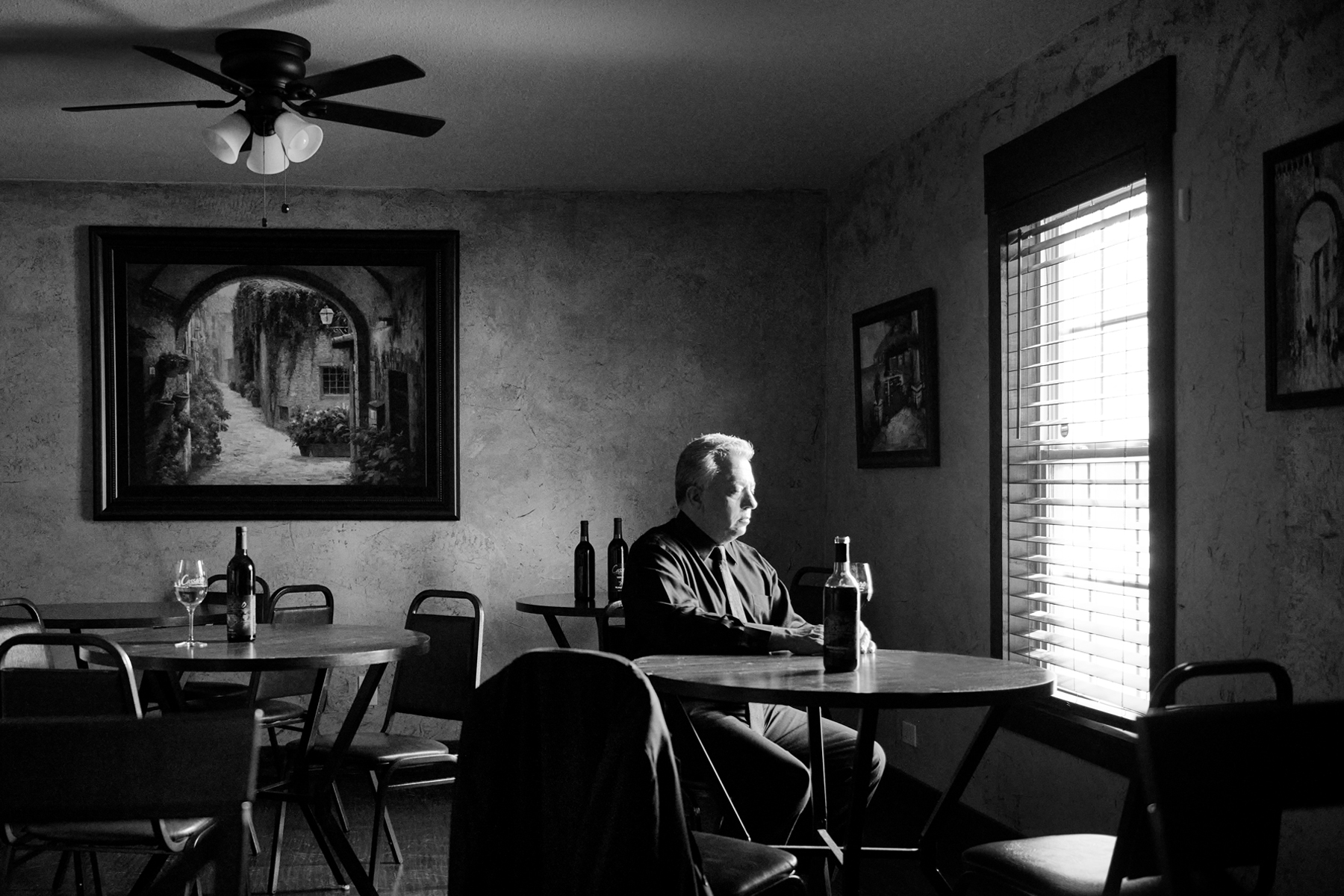
Matthews left the DPD to take his public safety consulting full time in 1999. Through the Community Safety Institute (CSI), he has advised multiple White House administrations, trained tribal nations’ forces, and created guidance on progressive police techniques such as de-escalation. “When I started policing, ‘de-escalation’ was you kick the shit out of somebody,” says Bryan Cornish, a retired Dallas Police Department lieutenant who helped Matthews at CSI. “And his whole thing was, protect yourself by not getting involved in that fight but by finding ways to talk somebody into jail. So it was all very innovative and very different. And it worked.”
Matthews began studying school shootings even before the tragedy in Columbine, Colorado. Training courses have taken him to every state in the nation multiple times, and his expertise earned him a regular spot as a talking head on Fox News and CNN.
All of this to say, Jill Matthews should have known that when she and her husband bought a 15-acre patch of Ovilla land, a man like John might start to get some ideas.
Matthews had long taken comfort in the bucolic outskirts of the city, tending to a vegetable garden and experimenting with wine fermentation. He had never known life without wine. His maternal grandparents, the Cassaros, emigrated from Naples and Sicily, and his formative years in an ethnic Italian neighborhood in upstate New York meant Sunday spreads heavy on the sauce. For decades, Matthews gifted bottles of his homemade wine to friends and family during the holidays. “But it was simply piddling,” he says.
Piddling advanced to fiddling. After settling onto their Ovilla acreage, Matthews planted a test row of 10 vines. He took a few enology and viticulture classes, which gave him experience working on established vineyards. One day, Matthews told his wife he was going to get more serious about growing grapes. Months later, in 2015, a truck pulled up with 500 rootstocks from Napa. Matthews can’t remember if he had discussed exactly how many vines would be showing up, but certainly the number seemed more manageable in the abstract than it did in their driveway.
My full plate is now overflowing, Jill thought. Her husband was on the road, training most of the week, so whatever he’d started, she’d have to keep going.
“I’m not even sure I realized what I was doing,” Matthews says. He didn’t even own an auger, the hole-boring power tool. Instead, he and two of his sons had prepped by mapping out and hand-digging 500 holes, plus all the holes for wood trellis posts that they sawed and installed themselves. “I mean, I’m not good at any of that,” he says. “I’m a cop.”
Matthews had a short period of time to get the entire shipment of rootstocks in the ground before they dried out. Jill put a call out for help on her Facebook page. Carloads of men, women, children—some of them perfect strangers—arrived to lend a hand. Adding to the dozens were a few passersby who saw the scene from the road. The crew wrapped by early afternoon. But being Italian, Matthews couldn’t stomach the idea of letting people go without feeding them. A friend fired up Matthews’ smoker. Another went out for cold drinks. “It was total, total chaos,” Matthews says. “But it was fun.”
Matthews has a running joke with his friend and winemaking mentor, Patrick Whitehead of Blue Ostrich Winery & Vineyard, in Saint Jo, Texas, in which they text one another the phrase “Living the dream!” followed by a photo of, say, a broken-down forklift beside a truckload of supplies. Another instance: “Living the dream! Why are my grapes on the ground?” It turns out the wood trellis posts Matthews and his sons installed weren’t strong enough to support the weight of mature vines.
Whether you know what you’re doing or you’re learning as you go, growing grapes in North Texas is not for the uncommitted. The sweltering climate doesn’t allow the fruit to cool at night like it does in California, limiting the varietals that tend to succeed. For Matthews, those are mainly tempranillo, albarino, and sangiovese, grapes that stem from a similar terroir in Europe. “I grow what grows,” Matthews says. “I have killed more vines, more varietals.” Chardonnay and viognier? No dice. Matthews’ eye-roller of a joke: “Probably because I’m Italian and they’re French. They didn’t really die. They just retreated.”
North Texas also has hailstorms and drought. Freezes often cause splitting that leaves vines open to infections such as Pierce’s disease (bacteria) and cotton root rot (fungus). Many of Matthews’ vines were damaged by frost on Halloween night 2019, and then came the historic freeze of 2021. “That was the coup de grâce on a lot of the vines,” he says. “So what do you do? Just give up?”
Matthews is now relying on grapes contracted from the high plains of West Texas and some from the Hill Country. This is not an uncommon practice in the wine business; most wineries supplement their crop with other growers’ grapes. The Matthewses have already started a multiyear overhaul of their vineyard to replace failing vines and install a steel trellis system.
“You’re committing to a lifestyle when you do this,” says Whitehead, who worked in Dallas radio for decades before planting a vineyard on his in-laws’ one-time ostrich farm. “You have to know that some years are going to be better than others. Because you’re going to get your heart broke a lot in this. It’s not just like planting tomatoes in your backyard. Grape growing in Texas is hard, and it requires a certain amount of knowledge and patience and diligence.”
John isn’t the only Matthews committing to the winery lifestyle. His son Joseph runs the flagship Ovilla winery, while son Michael heads up the Corsicana location housed in the town’s former railroad depot. (The couple’s youngest is 12, and Matthews has three grown offspring from a previous marriage, one of whom is a special agent with the FBI.) Jill, whose résumé includes law enforcement and early childhood development, now acts as Cassaro’s CFO and works the back of house. When I stopped by the Ovilla winery ahead of a Thursday opening, I saw her wiping down every surface while holding a giant bottle of Fabulosa.
“It often feels like we could have our own reality show,” Jill says. “There are times when one of us threatens to quit. There are times when we have to go to work with someone we just argued with at home. But there will never be anyone who has your back like we do. We truly love one another and have fun doing what we do.”
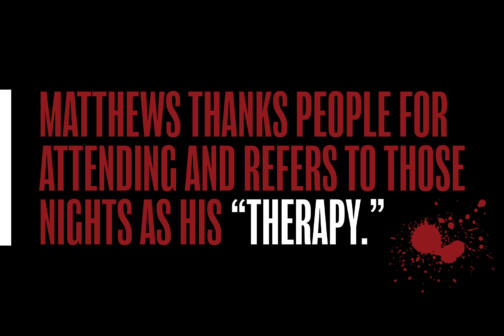
And what the Matthewses do is, well, everything, from pressing grapes to bottling to corking and labeling. “It’s the hardest business I’ve ever run because it’s three businesses,” Matthews says. “There’s the agricultural, manufacturing, and retail. And you’ve got to master every one of them to be successful.”
But just like his younger self, the one who built a pallet empire on quick wits, Matthews doesn’t do anything in half-measures. In March of this year, he was sworn in as the president-elect of the Texas Wine and Grape Growers Association, the organization that advocates for the state’s 5,000-plus acres of vineyards and about 800 wineries.
Matthews now owns an auger, and plantings are a more organized operation. With nearly 600 wine club members, there are always plenty of willing participants. “They really want to be part of the story,” he says.
Being “part of the story” is a large part of the appeal with “True Crime and Wine,” the reason corporate groups, and, recently, a wedding party, have called on Matthews to walk them through his investigation of grisly murders while sipping a fruit-forward sangiovese. Even my husband got sucked into the narrative, raising his hand to ask for more context on Flaca, the strung-out sex worker.
Matthews says his “True Crime and Wine” audience is 85 percent women between the ages of 35 and 65. “And a lot of times, we’ll have no guys in here at all,” he says. He meets a lot of teachers, real estate agents, and nurses. In other words, regular folks. “They’re fascinated with the psychology. They want to know how somebody could be so depraved. It is so far out of the realm of a normal person.”
About halfway into “True Crime and Wine,” just before a break, Matthews thanks people for attending and refers to those nights as his “therapy.” “When you see what I’ve seen over the last four decades and done what I’ve done all over the country with law enforcement,” he says, interrupting his train of thought to say: “You know, I don’t sleep at night.”
Weeks later, sitting in the tasting room, I ask what, exactly, keeps him awake. He tells me a couple of fragmented, one-sentence stories and then waves me off. “I could go on and on,” he says. But he sends me home with a copy of Police Perspective, a self-published compilation of his Oak Cliff Tribune columns from back in his street cop days. His stories are well told, and many are funny. (He once chased a criminal into a storm drain under the Dallas Zoo and both had to be extracted from a manhole located in the lion enclosure.)
But for every amusing memory, there are many more haunting: Matthews carrying an abandoned baby from a creek bed; discovering a bloodied toddler who survived a freezing night by nestling against her brother’s dead body; the smell of Parkland’s morgue; the moment he nearly shot a 15-year-old who pulled an all-too-convincing toy gun; and then 25 years of his phone lighting up after a mass shooting, again and again and again.
“There’s things you don’t forget,” Matthews tells me. “So that’s when I can go out to the vineyard, I can trim the vines, when I can work on blending, or the best thing, when we’re here at the winery and people are happy and laughing. It doesn’t get any better than that after you’ve seen man’s inhumanity to man. You can see there actually is a different side of life.”
From my side, I can see that vast gap between us, the civilians who consume true crime through the filter of earbuds or screens, and Matthews, the law enforcement vet who’s seen it play out in live action. His tasting room is a meeting ground between the two worlds, one of mayhem and one of order, a safe space where Matthews can escape the darkness and we can peer into its mystery. And in the end, everyone makes it out alive.
This story appears in the July issue of D Magazine. Write to [email protected]. To register for upcoming “True Crime and Wine” events, visit cassarowines.com.
Author



